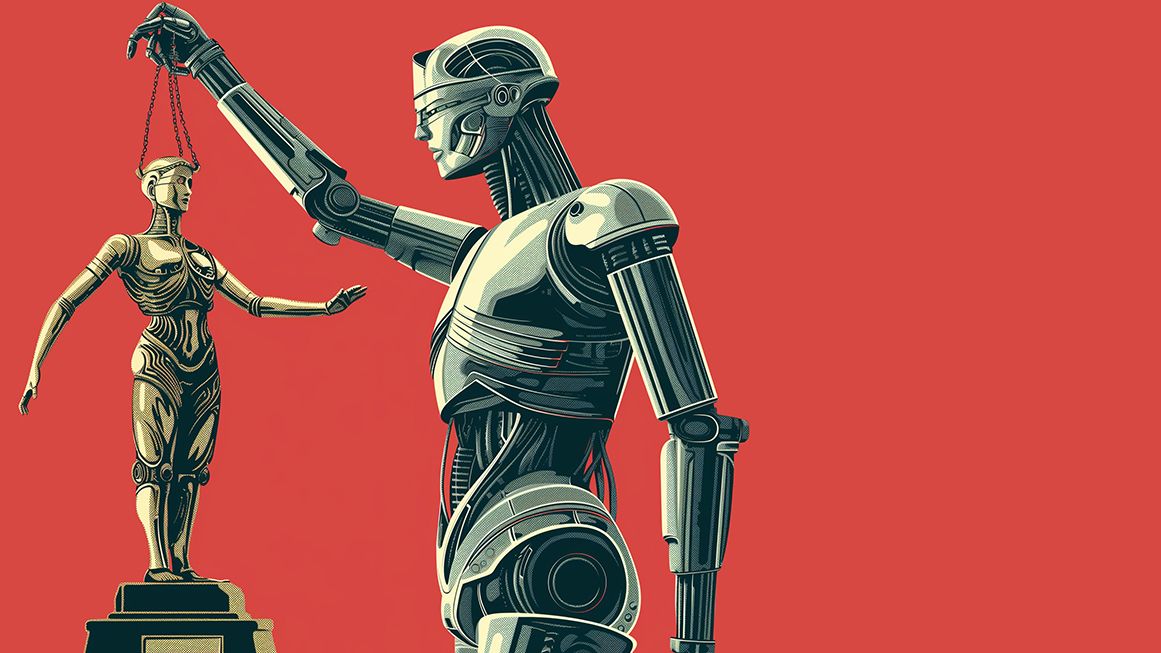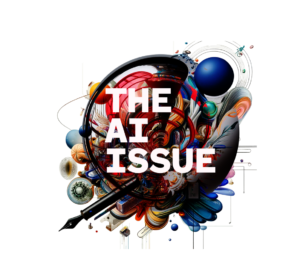Will Antitrust Policy Smother the Power of AI?
Left alone, artificial intelligence could actually help small firms compete with tech giants.


Populism continues to blur political lines. Nowhere is that more apparent than in antitrust policy. For decades, conservatives largely held the line against left-wing antitrust hawks who see "monopolies" everywhere. But their mistrust of Big Tech's political biases has caused the populist right to get more comfortable about unleashing antitrust. Odd alliances have formed with Republican senators openly praising some of the most progressive members of the Biden administration occupying high offices at the Federal Trade Commission (FTC) and Department of Justice. Adding a new wrinkle to this phenomenon is the dawn of the AI Age. We are seeing an ironic merger of panics.
What many see as a dystopian technological frontier with AI is just history repeating itself. New technology often disrupts dominant industries and firms in ways even the harshest antitrust remedies can't match. AI should be no different, but bipartisan antitrust zeal may score a pyrrhic victory and halt this historical cycle.
The right has long been concerned with large and biased institutions; conservative complaints about the "liberal media" and progressivism in academia have a rich history. The difference is that in the past conservatives responded by building their own institutions. Because of new technology, it had been easier to do so. Social media allowed heterodox voices to reach huge audiences. Search engines and online marketplaces made it easier to find customers. Online conservative institutions such as PragerU now have viewership numbers that rival and surpass traditional media. Entrepreneurs can circumvent retailers like Walmart and list directly on Etsy and Amazon. Despite concern about the size of today's tech companies, the evidence is abundant that competition downstream of platforms is thriving, benefiting consumers.
What's changed is that the barriers to building competing platforms are now perceived to be insurmountable. The "go build your own" argument is routinely mocked now. Indeed, there are daunting technological and knowledge barriers to coding, launching, and maintaining a new online platform. Just as new technology turbocharged competition in industries such as media and retail, AI also has the power to erase the barriers to building competing digital services.
While AI is making waves generating interesting images or "helping" students with homework, consumer-facing AI burst onto the scene a few years ago with services such as ChatGPT-3—turning plain text instructions into functional web code. As AI continues to improve, one may not need to "learn to code" to compete. "Go build your own" search service or shopping platform won't be a punchline. AI has unprecedented potential to level the playing field, if the revolution isn't stymied by the impatience of antitrusters.
AI now faces two broad policy threats. The first is AI being prematurely regulated under a heavy-handed ex ante approach as opposed to the status quo of permissionless innovation and ex post enforcement of existing laws as applied to AI. By entwining regulators in AI development, only the largest firms with the resources and knowledge necessary to navigate government demands will be able to compete. Lawmakers hardly realize that their desire to rein in dominant firms actually guarantees their longevity as market leaders. But the companies understand this and are usually more than happy to swallow regulations that will act as barriers to potential competitors.
The other threat is that antitrust scrutiny could sap the resources necessary for the continued development of competing AI systems. Antitrust litigation is ongoing or imminent for essentially all the major tech companies. In January, the FTC launched a probe into Microsoft's investments in OpenAI. Such cases impose enormous resource costs. Even a raised eyebrow from a regulator will deter companies from making bold new investments.
Bipartisan antitrust bills were introduced in the last Congress that would have explicitly barred the largest tech companies from ever making a new acquisition again. Such a policy, through either litigation or legislation, would close off a key avenue for investors in startups to make their money back. If investors don't see a realistic path to making a return, they're not likely to help new competitors get off the ground in the first place. Revolutionary AI companies may thus never leave parents' garages.
Innovation has always served as a crucial check on accumulated market power. The current antitrust enthusiasts have mistakenly latched onto AI as a symptom of their concerns with Big Tech, totally missing what it really represents: a natural solution.
This article originally appeared in print under the headline "Antitrust May Smother the Power of AI."


Show Comments (9)